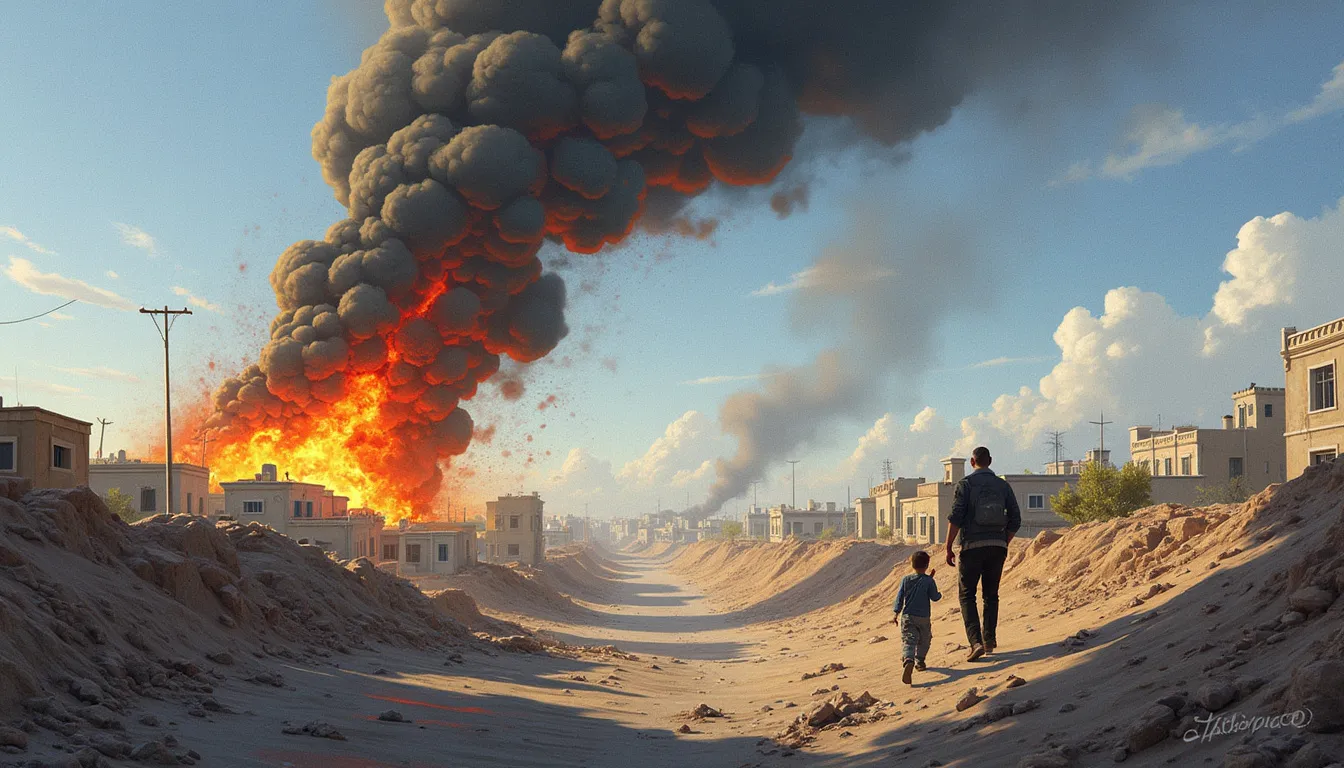
Israeli Officials Weigh Complete Blockade of Northern Gaza
As tensions escalate following the brutal October 7, 2023, attacks by Hamas, Israeli officials are deliberating a potential complete blockade of northern Gaza. This unprecedented strategy aims to apply immense pressure on the militant group but sparks a contentious debate regarding its implications for the post-conflict phase.
Israeli Decision-Making Amidst Crisis
The Israeli leadership is currently engaged in heated discussions on how to effectively combat Hamas. With military action under serious consideration, officials aim to identify pathways that will ensure long-term stability without further exacerbating the already volatile region. A blockade could be viewed as a definitive step toward crippling Hamas’s operational capabilities and sending a strong message about Israel’s resolve.
Controversy over Humanitarian Aid
In parallel, there is rising opposition within Israel to allowing any humanitarian aid into Gaza. Many citizens and lawmakers express concerns that such aid may ultimately benefit Hamas rather than the estimated 2 million civilians who reside in the enclave. The sentiment against aid deliveries has transformed into a powerful public movement, reflected in protests and public discourse. This prevailing attitude complicates decision-making for Israeli officials who recognize the importance of humanitarian considerations while grappling with security concerns.
Hamas’s Provocations
The recent violent incursions by Hamas have led to significant loss of life and hostage situations, further inflaming public sentiment against the group. Israeli officials argue that a hardline approach may be necessary, especially in light of Hamas’s ongoing threats and operational strategies. The desire for a decisive response is palpable, yet the potential humanitarian fallout remains a pressing concern.
International and Domestic Dynamics
Internationally, the crisis has drawn responses from various governments and organizations, particularly the United States, which has been actively involved in crisis management efforts. Domestically, public opinion is divided; some factions advocate for aggressive military actions, while others call for a more measured approach that considers humanitarian impacts. This internal schism complicates the Israeli government’s stance as it navigates the pressures of both security and public sentiment.
The Rise of Anti-Israel Sentiment
Moreover, the blockade proposal has intensified anti-Israel sentiments globally, with various activist groups critiquing Israel’s military tactics and advocating for Palestinian rights. The response from these groups often intersects with political narratives, heightening tensions and complicating international relations. Criticism directed at Israel’s policies, both in terms of military actions and humanitarian aid, underscores the complexity of the situation.
Security Concerns
The overarching security landscape in Gaza remains fraught with challenges. Israeli officials contend that the risk of aid diversion and Hamas’s potential control over distribution mechanisms necessitates a stringent blockade. This perspective hinges on the belief that without firm action, the cycle of violence may perpetuate, endangering both Israeli and Palestinian lives.
Conclusion
The potential complete blockade of northern Gaza stands as a pivotal issue that encapsulates the multifaceted dilemmas facing Israeli leaders. As they consider the ramifications of such a drastic measure, the balance between achieving security and maintaining humanitarian principles remains at the forefront of strategic discussions. The outcome of these deliberations will likely shape not only the immediate conflict but also the future trajectory of Israeli-Palestinian relations in a post-conflict reality.
